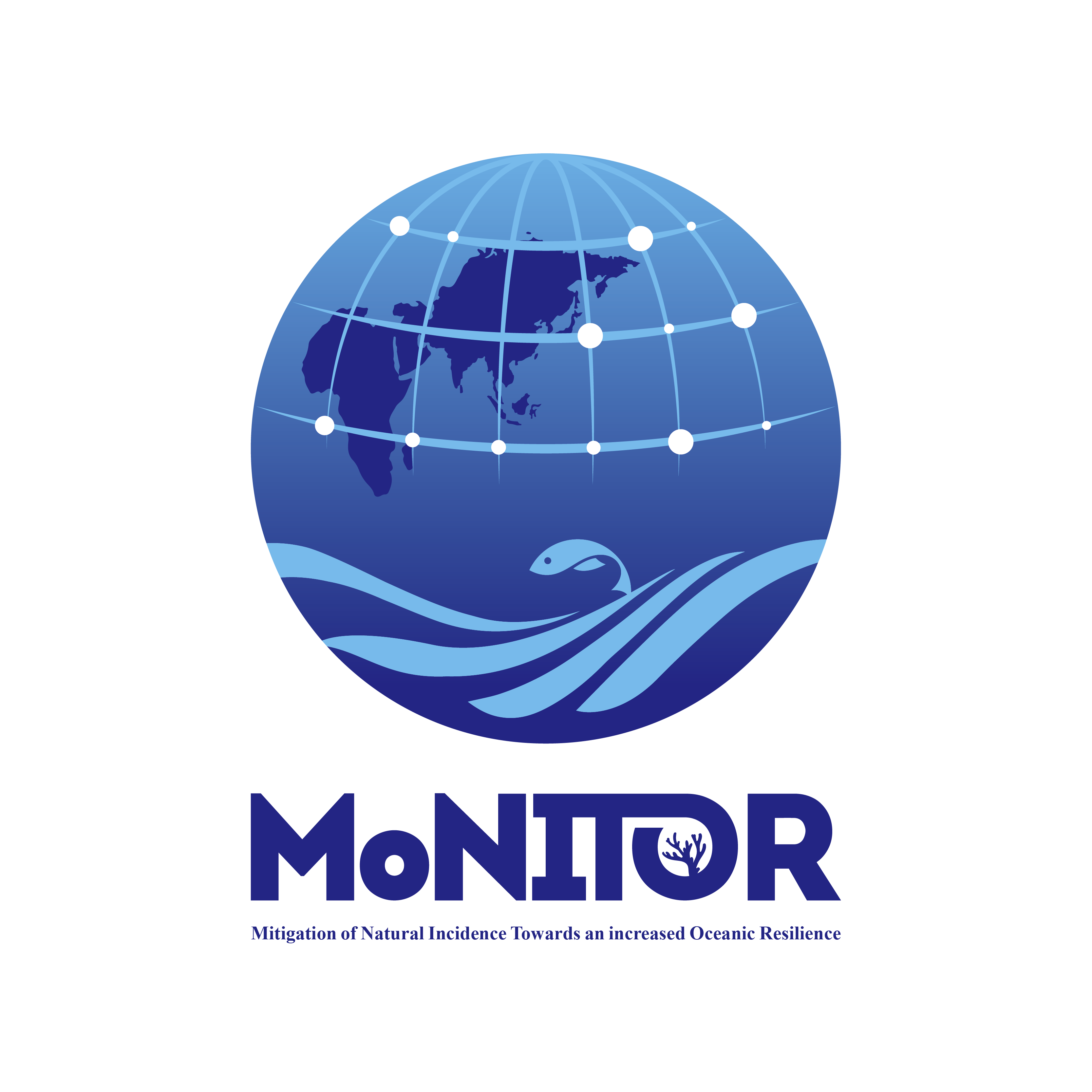Mitigation of Natural Incidence Towards an increased Oceanic Resilience (MoNITOR) for global coastal communities
Second Institute of Oceanography, MNR
(
Academic institution
)
#OceanAction56371
Description
The Mitigation of Natural Incidence Towards an Increased Oceanic Resilience (MoNITOR) programme is committed to enhancing coastal ecosystems' resilience in the face of growing environmental challenges, such as tropical cyclones, hypoxia, eutrophication, sea level rise, global warming, marine heatwaves, and harmful algal blooms (HABs). To achieve this, MoNITOR aims to establish a high-resolution, physically and ecologically coupled numerical forecasting system that improves prediction accuracy and enables timely interventions. This system will play a crucial role in safeguarding marine environments, promoting sustainable marine development, and ensuring the long-term health of coastal ecosystems.
To implement these objectives, MoNITOR adopts a multidisciplinary and multi-scale research approach, beginning with the collection and integration of high-quality, multi-modal observational data on key ecological parameters and oceanic processes. This data will serve as the foundation for developing and refining a high-resolution numerical model that couples physical and ecological processes. By optimizing key parameters, this model will enhance the accuracy and reliability of coastal ecosystem predictions. Furthermore, MoNITOR will promote the practical application of this forecasting system across partner countries, publishing short-term numerical forecast products and engaging with stakeholders to support sustainable fisheries, aquaculture, and coastal resource management.
In addition to these technical efforts, MoNITOR is dedicated to fostering talent development and enhancing international knowledge exchange through conferences, training courses, and exchange programs. This will build the capacity of marine professionals, equipping them to address current and future challenges in marine science and policy.
To ensure the programme's effectiveness and sustainability, MoNITOR will establish a robust governance structure that includes continuous monitoring, evaluation, and adaptation mechanisms. This structure will regularly assess progress, engage stakeholders, and promote the dissemination of knowledge through publications and open data platforms. The governance of MoNITOR will be overseen by a steering committee composed of representatives from participating countries, scientific experts, and key stakeholders, ensuring that the programme aligns with international standards and contributes significantly to sustainable development goals, thus fostering a resilient and healthy ocean for future generations.
Ocean University of China, Academic institution
Integrated Marine Biosphere Research, Academic institution
Hong Kong University of S&T, Academic institution
Nagasaki University, Academic institution
Ehime University, Academic institution
Pukyong National University, Academic institution
Pusan National University, Academic institution
University Malaysia Terengganu, Academic institution
Mahidol University, Academic institution
University of Sydney, Academic institution
Secretariat of the Pacific Regional Environment Programme, Intergovernmental organization
University of Cape Town, Academic institution
University of Toliara, Academic institution
Institut Halieutique et des Sciences Marines, Academic institution
IES Anosy Fort Dauphin, Academic institution
University of Nairobi, Academic institution
National Oceanography Centre, Academic institution
IOCAFRICA, Intergovernmental organization
National Institute of Oceanography & Fisheries, Academic institution
Zanzibar Fisheries and Marine Resources Research Institute, Academic institution
Laboratory of Ecology & Ecotoxicology, Academic institution
Gambia Ports Authority, Academic institution
SDGS & Targets
Goal 13
Take urgent action to combat climate change and its impacts
13.1
Strengthen resilience and adaptive capacity to climate-related hazards and natural disasters in all countries
13.1.1
Number of deaths, missing persons and directly affected persons attributed to disasters per 100,000 population
13.1.2
Number of countries that adopt and implement national disaster risk reduction strategies in line with the Sendai Framework for Disaster Risk Reduction 2015–2030
13.1.3
Proportion of local governments that adopt and implement local disaster risk reduction strategies in line with national disaster risk reduction strategies
13.2
Integrate climate change measures into national policies, strategies and planning
13.2.1
Number of countries with nationally determined contributions, long-term strategies, national adaptation plans and adaptation communications, as reported to the secretariat of the United Nations Framework Convention on Climate Change
13.2.2
Total greenhouse gas emissions per year
13.3
Improve education, awareness-raising and human and institutional capacity on climate change mitigation, adaptation, impact reduction and early warning
13.3.1
Extent to which (i) global citizenship education and (ii) education for sustainable development are mainstreamed in (a) national education policies; (b) curricula; (c) teacher education; and (d) student assessment
13.a
Implement the commitment undertaken by developed-country parties to the United Nations Framework Convention on Climate Change to a goal of mobilizing jointly $100 billion annually by 2020 from all sources to address the needs of developing countries in the context of meaningful mitigation actions and transparency on implementation and fully operationalize the Green Climate Fund through its capitalization as soon as possible
13.a.1
Amounts provided and mobilized in United States dollars per year in relation to the continued existing collective mobilization goal of the $100 billion commitment through to 2025
13.b
Promote mechanisms for raising capacity for effective climate change-related planning and management in least developed countries and small island developing States, including focusing on women, youth and local and marginalized communities
13.b.1
Number of least developed countries and small island developing States with nationally determined contributions, long-term strategies, national adaptation plans and adaptation communications, as reported to the secretariat of the United Nations Framework Convention on Climate Change
Goal 14
Conserve and sustainably use the oceans, seas and marine resources for sustainable development
14.1
By 2025, prevent and significantly reduce marine pollution of all kinds, in particular from land-based activities, including marine debris and nutrient pollution
14.1.1
(a) Index of coastal eutrophication; and (b) plastic debris density
14.2
By 2020, sustainably manage and protect marine and coastal ecosystems to avoid significant adverse impacts, including by strengthening their resilience, and take action for their restoration in order to achieve healthy and productive oceans
14.2.1
Number of countries using ecosystem-based approaches to managing marine areas
14.3
Minimize and address the impacts of ocean acidification, including through enhanced scientific cooperation at all levels
14.3.1
14.4
By 2020, effectively regulate harvesting and end overfishing, illegal, unreported and unregulated fishing and destructive fishing practices and implement science-based management plans, in order to restore fish stocks in the shortest time feasible, at least to levels that can produce maximum sustainable yield as determined by their biological characteristics
14.4.1
14.5
By 2020, conserve at least 10 per cent of coastal and marine areas, consistent with national and international law and based on the best available scientific information
14.5.1
14.6
By 2020, prohibit certain forms of fisheries subsidies which contribute to overcapacity and overfishing, eliminate subsidies that contribute to illegal, unreported and unregulated fishing and refrain from introducing new such subsidies, recognizing that appropriate and effective special and differential treatment for developing and least developed countries should be an integral part of the World Trade Organization fisheries subsidies negotiation
14.6.1
Degree of implementation of international instruments aiming to combat illegal, unreported and unregulated fishing
14.7
By 2030, increase the economic benefits to Small Island developing States and least developed countries from the sustainable use of marine resources, including through sustainable management of fisheries, aquaculture and tourism
14.7.1
Sustainable fisheries as a proportion of GDP in small island developing States, least developed countries and all countries
14.a
Increase scientific knowledge, develop research capacity and transfer marine technology, taking into account the Intergovernmental Oceanographic Commission Criteria and Guidelines on the Transfer of Marine Technology, in order to improve ocean health and to enhance the contribution of marine biodiversity to the development of developing countries, in particular small island developing States and least developed countries
14.a.1
14.b
Provide access for small-scale artisanal fishers to marine resources and markets
14.b.1
Degree of application of a legal/regulatory/policy/institutional framework which recognizes and protects access rights for small‐scale fisheries
14.c
Enhance the conservation and sustainable use of oceans and their resources by implementing international law as reflected in United Nations Convention on the Law of the Sea, which provides the legal framework for the conservation and sustainable use of oceans and their resources, as recalled in paragraph 158 of "The future we want"
14.c.1
Number of countries making progress in ratifying, accepting and implementing through legal, policy and institutional frameworks, ocean-related instruments that implement international law, as reflected in the United Nations Convention on the Law of the Sea, for the conservation and sustainable use of the oceans and their resources
SDG 14 targets covered
| Name | Description |
|---|---|
| 14.1 | By 2025, prevent and significantly reduce marine pollution of all kinds, in particular from land-based activities, including marine debris and nutrient pollution |
| 14.2 | By 2020, sustainably manage and protect marine and coastal ecosystems to avoid significant adverse impacts, including by strengthening their resilience, and take action for their restoration in order to achieve healthy and productive oceans |
| 14.3 | Minimize and address the impacts of ocean acidification, including through enhanced scientific cooperation at all levels |
| 14.4 | By 2020, effectively regulate harvesting and end overfishing, illegal, unreported and unregulated fishing and destructive fishing practices and implement science-based management plans, in order to restore fish stocks in the shortest time feasible, at least to levels that can produce maximum sustainable yield as determined by their biological characteristics |
| 14.5 | By 2020, conserve at least 10 per cent of coastal and marine areas, consistent with national and international law and based on the best available scientific information |
| 14.7 | By 2030, increase the economic benefits to Small Island developing States and least developed countries from the sustainable use of marine resources, including through sustainable management of fisheries, aquaculture and tourism |
| 14.a | Increase scientific knowledge, develop research capacity and transfer marine technology, taking into account the Intergovernmental Oceanographic Commission Criteria and Guidelines on the Transfer of Marine Technology, in order to improve ocean health and to enhance the contribution of marine biodiversity to the development of developing countries, in particular small island developing States and least developed countries |
| 14.c | Enhance the conservation and sustainable use of oceans and their resources by implementing international law as reflected in United Nations Convention on the Law of the Sea, which provides the legal framework for the conservation and sustainable use of oceans and their resources, as recalled in paragraph 158 of "The future we want" |
Deliverables & Timeline
Resources mobilized
Partnership Progress

Feedback
Action Network

Timeline
Entity
Other beneficiaries
Ocean Basins
Communities of Ocean Action
More information
Countries












Headquarters
Contact Information
Yuntao, Professor

